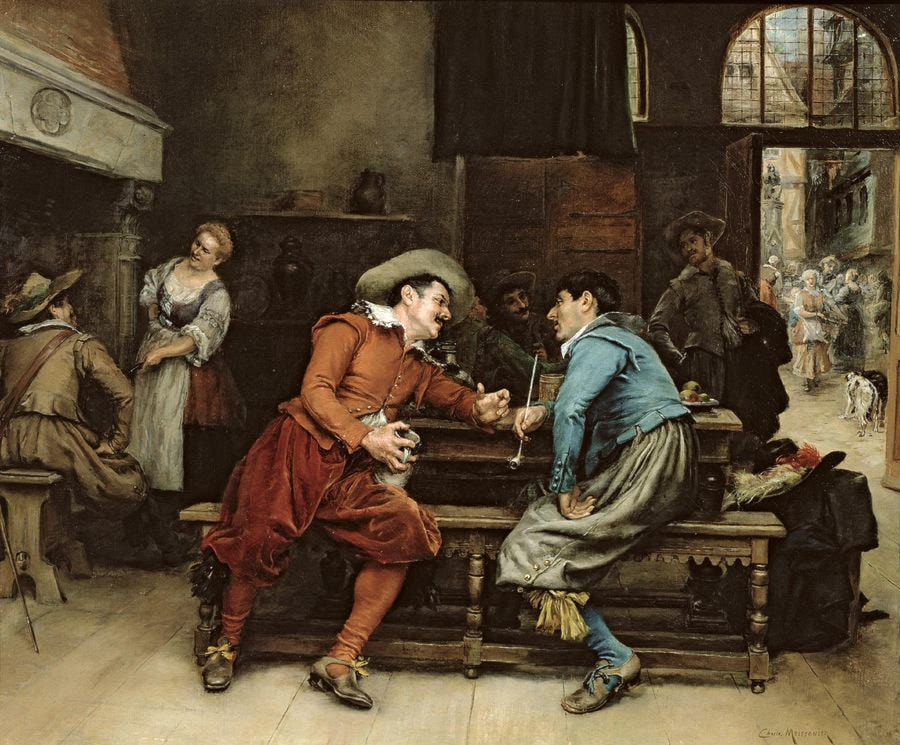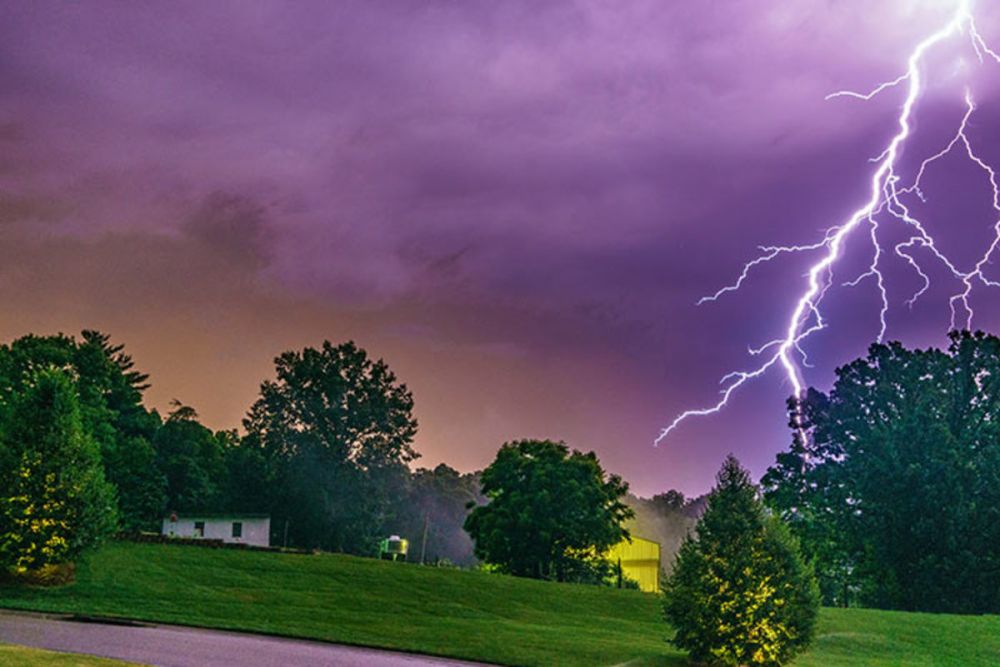《最后的诗歌》:9: 栗子树甩掉它的火炬
《最后的诗歌》
IX
第九首
栗子树甩掉它的火炬
The Chestnut Casts His Flambeaux, and the Flowers
英国 A. E. 豪斯曼原著
Alfred Edward Housman (1859 – 1936)
徐家祯翻译

The chestnut casts his flambeaux, and the flowers
Stream from the hawthorn on the wind away,
The doors clap to, the pane is blind with showers.
Pass me the can, lad; there’s an end of May.
There’s one spoilt spring to scant our mortal lot,
One season ruined of our little store.
May will be fine next year as like as not:
Oh ay, but then we shall be twenty-four.
We for a certainty are not the first
Have sat in taverns while the tempest hurled
Their hopeful plans to emptiness, and cursed
Whatever brute and blackguard made the world.
It is in truth iniquity on high
To cheat our sentenced souls of aught they crave,
And mar the merriment as you and I
Fare on our long fool’s-errand to the grave.
Iniquity it is; but pass the can.
My lad, no pair of kings our mothers bore;
Our only portion is the estate of man:
We want the moon, but we shall get no more.
If here to-day the cloud of thunder lours
To-morrow it will hie on far behests;
The flesh will grieve on other bones than ours
Soon, and the soul will mourn in other breasts.
The troubles of our proud and angry dust
Are from eternity, and shall not fail.
Bear them we can, and if we can we must.
Shoulder the sky, my lad, and drink your ale.
栗子树甩掉它的火炬,
山楂树的花朵随风飘散,
门在摔打,窗户被雨矇成瞎眼,
给我一杯啤酒,五月已经过完。
我们凡人一生中少了一个糟蹋掉的春天,
在我们小小的储备中一个季节已被摧。
明年的五月,十之八九会是好天气,
喔,对了,那时我们将是二十四岁。
我们肯定不是第一个人
在暴风雨袭击时只能呆在小酒馆,
他们满怀希望的计划泡了汤,
这都要怪那个创造世界的恶棍和坏蛋。
这确实是上苍的罪过,
欺骗我们注定有罪的灵魂的任何求诉,
弄糟我们的一点乐趣,
让你我一直被戏弄着走向坟墓。
这确实是罪过;但是,把酒杯递给我,
我的伙计,我们的母亲没有生一对国王,
我们只有普通人所能拥有的身份和家产,
我们想要月亮,这却是不可实现的梦想。
要是今天暴风雨的乌云在这里皱眉,
那么,明天它就会听从远方的命令往别处赶;
其他人就会伤心受苦,
很快,灵魂就会在别人的胸膛哀叹。
我们骄傲而愤怒的尘土的一切烦恼
与生俱来,无法摧毁,
忍耐吧,尽我们所能,
扛起天空吧,我的伙计,干杯!
二 0 二二年四月十九日
译于澳大利亚刻来佛寺爱闲堂

* 豪斯曼的这首诗是诗集《最后的诗歌》中的第 9 首。 这首诗说的是在一个暴风雨的春天,两个小伙子躲在一家小酒馆里避雨时,其中一个小伙子对另一个小伙子说的话。
诗的第一节描写了春天的暴风雨。栗子树的花一簇一簇高高耸起,看起来像火 炬,被风一吹,这些花朵都掉了下来,所以诗人用拟人手法说栗子树“甩掉”了火炬。 门被风吹打得像在“摔打”。窗子被雨矇住了,所以说瞎了眼。
诗的第二节是小伙子的抱怨。好好一个春天被天气破坏了。虽然,明年还有五 月,但是那时他又长了一岁。一年的大好时光被糟蹋了。
从诗的第三节开始,诗人将坏天气归罪于“创造世界的恶棍和坏蛋”,而且说, 遇到不如意的事,这是人类共同的命运,不只是他们两人才遇到坏天气。
诗的第四节说:“我们注定有罪的灵魂”,那是说根据《圣经》,人生来就有罪, 我们来到世上,是来赎罪的。所以,我们注定了一生“被戏弄着走向坟墓”。
诗的第五节再回到人类的共同命运。
诗的第六节中说:“我们骄傲而愤怒的尘土”,这句也来自于《圣经》,因为《圣 经》说上帝用泥土创造了人类,人死后也会变成尘土,所以说:从尘土而来,又归于 尘土。因为人的一切烦恼都是命中注定的,所以就“无法摧毁”。小伙子最后说:“忍耐 吧,尽我们所能”,这是人类仅能做到的事情。他用“扛起天空”来比喻人类要承受多大 的压力和痛苦。“扛起天空”也来自于《圣经》故事:泰坦(Titan)因为向神挑战,失 败后被罚终生扛起天空。
在诗中,三次提到“酒杯”和“干杯”,那就是诗人认为对于人类命定的烦恼,除 了以酒浇愁之外,就别无他法了。
原诗七节,每节四句。译诗双句押韵,每节一韵。
